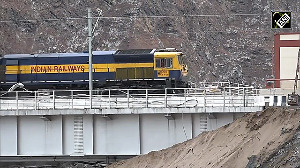Chandigarh is ranked second in both e-infrastructure and e-participation. Puducherry ranks after Chandigarh on the e-infrastructure index.

Delhi has emerged as the top state in terms of internet readiness with a strong position in areas like e-infrastructure, e-participation, IT environment, government e-services, a report by industry body IAMAI said on Wednesday.
The report titled 'Index of Internet Readiness of Indian States' published by the Internet and Mobile Association of India (IAMAI) and Nielsen, noted that Delhi takes the first slot among all states and is followed by Karnataka, Maharashtra, Kerala and Tamil Nadu.
Chandigarh is ranked second in both e-infrastructure and e-participation. Puducherry ranks after Chandigarh on the e-infrastructure index.
"We are hopeful that India will leapfrog from the present 155th position to world's top 5th in connectivity, within the next 5-6 years," Ministry of Electronics & Information Technology secretary Aruna Sundararajan said.
"India today is one of the most rapidly digitising economies in the world with the telecom industry leading the change. Things have improved multi-fold with state governments of Chattisgarh, Andhra Pradesh and Telangana among others taking proactive steps to improve connectivity and Internet reach," Sundararajan said.
Among the northeastern states, Nagaland tops the list, closely followed by Manipur and Tripura, though these states rank low in terms of overall internet readiness.
The report found that Karnataka, Delhi and Maharashtra are the top three states with the highest number of digital start-ups.
It noted that of the total 242 start-up incubators in the country, 61 start-up incubators are in Tamil Nadu. About 83 per cent of these incubators are in 10 states – Tamil Nadu, Karnataka, Uttar Pradesh, Maharashtra, Kerala, Telangana, Gujarat, West Bengal, Delhi and Rajasthan.
In the North East, except for Manipur where a single start-up incubator is present, none of the other states have one.
"The combination of various indigenous digital platforms along with innovative and disruptive startups holds the greatest scope for digital transformation in India. Post demonetisation, the country today has 3 million point of sale (POS) as compared to 150,000 POS earlier which is clearly a transformation," added Sundararajan.
Photograph: Jorge Silva/Reuters






 © 2024 Rediff.com -
© 2024 Rediff.com -